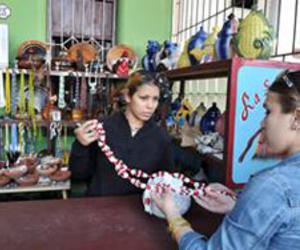Cuba Reportedly Doubles Trade Surplus
- Submitted by: manso
- Business and Economy
- 01 / 08 / 2011

By Marc Frank. Published January 07, 2011.FoxNews.com. Cuba totalled a $3.9 billion trade surplus in 2010 as President Raul Castro’s efforts to reduce imports and earn more abroad brought results for a second consecutive year, according to the government’s statistics office.
The $3.9 billion figure is twice the $2 billion reported in 2009, and is a first step in getting the nation’s debt-ridden economy out of the woods, Reuters reports.
Hurricanes, the international financial crisis and internal inefficiencies left the country without funds in 2008.
Increased prices for Cuba’s main exports – nickel, petroleum derivatives and other medical and technical services accounted for the rise -- while revenues from tourism and communications were also reportedly up.
The country has been struggling with severe financial problems since 2008, when hurricanes, the international financial crisis and internal inefficiencies left it without funds to pay its bills.
The National Statistics Office reported on its web page, www.one.cu, that exports increased 12.9 percent to $13.6 billion in 2010, led by the selling of services at $9.4 billion. Imports fell 3.3 percent to $9 billion.
Higher prices for Cuba's main exports -- nickel, petroleum derivatives and medical and other technical services -- likely accounted for most of the increase, while revenues from tourism and communications were also reportedly up.
Some 75 percent of Cuban exports come from services such as tourism, communications and the export of doctors and other professionals to oil-rich countries such as Venezuela, Angola, Algeria and Qatar, which pay for the services on a sliding scale linked to oil prices.
Prices for oil increased significantly in 2010, as they did for Cuban exports nickel and sugar.
Friday's report appeared to correct recent statements by Economy Minister Marino Murillo, covered by the official media, that exports had increased 41.5 percent last year, though authorities were not immediately available for comment.
DEBT BURDEN WEIGHS
Local analysts estimated Cuba's current account registered a surplus of about $1 billion in 2010, though little data was available.
Many debts to governments and business were restructured or went unpaid in 2009, foreign company bank accounts frozen, dividends owed joint venture partners postponed and imports cut a staggering 37 percent.
Castro said in December that all frozen accounts would be settled by the end of this year.
Western diplomats and businessmen said Cuba was gradually unblocking the funds but at the same time still moving slowly on foreign debt payments and dividends owed its foreign partners operating in the country.
Cuba last reported its foreign debt at $17.8 billion in 2007. Most analysts agree it is now above $21 billion -- or close to 50 percent of the gross domestic product and some 25 percent more than annual export revenues.
Raul Castro has hammered away at the need for Cuba to get its economic house in order and pay its bills since taking over as president from his brother Fidel in 2008.
The country's growing debt and service payments are a key reason for Castro's push to overhaul Cuba's Soviet-style economy, according to government insiders.
The reforms, to be discussed at a Communist Party congress in April, include drastic budget cuts and layoffs and ending most state subsidies.
They also would grant state-run companies more autonomy and encourage more small private businesses, foreign investment, cooperatives and other "non-state" forms of running enterprises. (Editing by Jeff Franks and Bill Trott)
Source: http://af.reuters.com/article/energyOilNews/
Comments